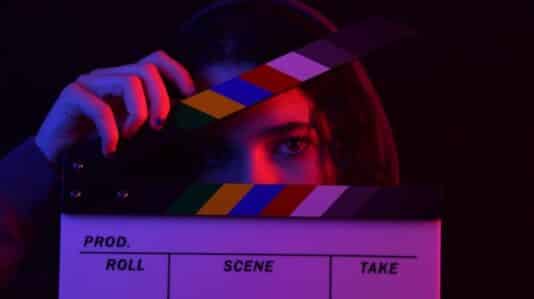Celebrity identities have been fraudulently manipulated in hyper-realistic videos, known as deepfakes, since the technology became widely available in 2017. In October 2022, Bruce Willis denied claims made by a deepfake company that he had “sold the rights to his face” in an apparent bid to extend his acting career past his retirement. Even though Bruce Willis has not partnered with a deepfake company, at least one actor has. James Earl Jones, famous for his portrayal of Darth Vader, sold the rights to his iconic voice to a deepfake company in September 2022, sparking a trend for other actors. However, this is a trend that comes with its own concerns and legal considerations.
WHAT IS A DEEPFAKE?
In its most common form, a deepfake is a video where one person’s face has been substituted with a computer-generated face and is accompanied by a digitally-replicated voice. The term “deepfake” comes from the combination of “deep machine learning” and “fake.” Deepfaking is a technology where artificial intelligence is used to create deceptively realistic images, audio and videos, resulting in what some people call “synthetic media” because of its artificial yet believable form. Convincing deepfakes have been spread around every corner of the Internet, including in political videos, comedy skits and pornography.
WHAT INTELLECTUAL PROPERTY ISSUES SHOULD WE EXPECT WITH DEEPFAKES?
- PERSONALITY RIGHTS
Because AI technology plausibly allows creators to manipulate anyone’s image into a lifelike video without their consent, deepfakes are understandably controversial. Deepfakes and personality rights intersect frequently because this technology commonly seeks to perfectly recreate a person’s image and voice. In the U.S., personality rights allow an individual to control the commercial use of their identity. These rights vary in scope from state to state and typically protect a person’s name, image and likeness, as well as other unique identifiers, including their voice and signature. It is likely that courts will have to consider the degree of resemblance of those identifiers required for a deepfake to infringe an individual’s personality rights. Because commercial exploitation is at the foundation of personality rights, legal issues around likeness tend to arise in the context of advertising, which could benefit from deepfake technology as a potentially cheaper alternative to a physical shoot.
- COPYRIGHT LAW
Deepfakes are also highly intertwined with copyright law, as they are frequently created by modifying pre-existing, copyrighted content. Copyright infringement concerns therefore arise with deepfakes, although there may be a viable fair use defense to infringement in some cases. Further, works created by AI are currently ineligible for copyright protection. Under the U.S. Copyright Act, a work is copyrightable when it is an original work of authorship that is fixed in a tangible medium (i.e., written down or recorded). The Copyright Office recently clarified that to qualify as a “work of authorship,” the work must be created by a human being. This means that deepfakes created by AI technology are likely outside the scope of contemporary copyright law.
- CONTRACTS
Contract clauses governing personality rights and copyrights may need an update to account for deepfake technology. Deepfakes are still relatively new, and their effect on entertainment contracts is still to be seen. As with James Earl Jones, actors may continue to seek out deepfake companies as a way to extend their careers long after they retire. Effective contract drafting and negotiation with an eye toward the future of deepfakes will be key.
CONCLUSION
Deepfake technology is changing the landscape of celebrity status as we know it. In the entertainment industry, we are beginning to see a shift where actors are warming up to deepfake companies, but this largely undeveloped field may be difficult to navigate. An experienced entertainment law attorney can help you understand your rights when it comes to working with – or evading – deepfake technology. Contact a member of our team for next steps.
Contributions to this blog by David Yu.
Carlianna Dengel is admitted to practice law in New York and California.






